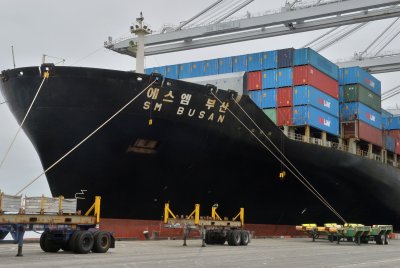Oct. 10 (UPI) — China said Friday it will start charging U.S. ships docking at its ports in a direct response to the Trump administration imposing the same fee on Chinese vessels entering U.S. shores.
The Chinese Ministry of Transportation announced beginning Tuesday it will charge about $56 per ton for American vessels entering China’s ports in a reciprocal response to ship fees imposed by the United States of about the same at $50 per ship via China.
In addition, China stated it will match the United States by increasing fees over time through April 2028.
In the short term, however, this will “result in an increase in costs for U.S. consumers, a decrease in profits for shippers, and a small decline in demand for exports to the U.S. in certain category,” according to Michael Hart, president of the American Chamber of Commerce in China.
The U.S. and Chinese shipping fees are set to take effect the same day.
On Friday, Beijing said the initial U.S. ship fees imposed by the Trump White House “seriously violate” global trading principles and “seriously damages” China-U.S maritime trade.
“China can give as good as it gets and has demonstrated a willingness to take direct action,” Peter Alexander, managing director of Z-Ben Advisors in Shanghai, told CNBC.
China’s Transportation Ministry said fees will apply to ships owed by American citizens, businesses, organizations and other entities under the U.S. flag holding a 25% ownership stake or more.
Alexander suggested that U.S. President Donald Trump continues to “underestimate China and this needs to stop” and was “just more tit-for-tat negotiation tactics.”
“There seems to be little consideration given to second and third-order effects of policy choices,” he added.
It arrived as communist China and President Xi Jingping seeks to leverage control over export of rare Earth minerals and Trump’s tax-like tariff policies.
“Have there been any lessons learned by the Americans over the past six months?” Alexander questioned. “It certainly doesn’t seem so,” he added.
